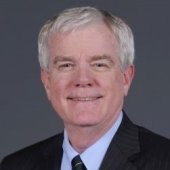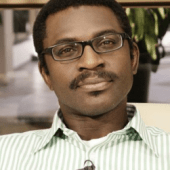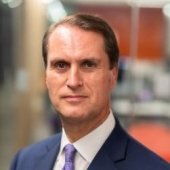Protiviti-Oxford survey shows North America ‘enthusiasm gap’ about ESG’s future impact
IN BRIEF
- Only 25% of North American executives say ESG will be extremely important to business success by 2032, lagging significantly behind Asia-Pacific (71%) and Europe (58%).
- Most executives in Europe (81%) and Asia-Pacific (88%) believe their corporate greenhouse gas emissions will decline by 2032, but only 37% of North American executives share that view.
- A vast majority of global executives (78%) think ESG reporting will be mandatory by 2032, but more than half of North American business leaders (51%) say it will remain voluntary.
A global survey conducted by University of Oxford and Protiviti in the second quarter of 2022 reveals that business leaders worldwide agree ESG (environmental, social and governance) will be either extremely or somewhat important to their business success over the next decade. Executives were evenly split—50/50—on whether ESG would be “extremely important” or “somewhat important” to their business in 2032. No respondent said ESG “won’t be important at all.”
Environment is the top ESG risk
Among all global business leaders, 43% place environmental factors as the highest risk, 37% prioritized social factors, and just 20% said they are most concerned about the risk posed by governance factors.
Drilling down into the environmental results, the geographic disconnect continues. Only 7% of North American business leaders would characterize the potential risks posed by environmental factors as “extreme” by 2032, while that number jumps to 23% in Europe and 34% percent in Asia-Pacific. On the flip side, a shocking 39% of North American respondents said they believed environmental risk factors would be “low” in 10 years’ time. That number was just 18% in Asia-Pacific and 15% in Europe.
Among all business leaders, 64% expect an increase in corporate spending on managing environmental risks. But seen through the geographic lens, an overwhelming number of executives in Asia-Pacific (81%) and Europe (79%), anticipate an increase in spending on the horizon. Meanwhile, 61% of North American business leaders predict their company spending related to environment risks will remain about the same or even decrease.
And here’s one stunning statistic to consider: Most executives in Europe (81%) and Asia-Pacific (88%) believe their corporate greenhouse gas emissions will decrease by 2032, but in North America, that number drops to just 37%. Stunningly, 10% of North American executives admit their company’s corporate greenhouse gas emissions will increase by 2032. The remaining 53% say they will stay about the same.
64%↑
Among all business leaders, 64% expect an increase in corporate spending on managing environmental risks.
ESG goes mainstream
In addition to the geographic findings, the survey responses revealed the ESG approach to business practice is becoming more mainstream, as almost three-quarters of business leaders report they have established a dedicated ESG or sustainability post. Younger C-suite executives, those who are under 50 years old, are even more apt to buy in on ESG: 60% of them trust ESG will become extremely important to their business strategically over the next decade.
Most business leaders surveyed believe that customer demands and regulatory requirements will be the main drivers of ESG strategy over the next 10 years. The overall picture is driven by the respondents from North America and Europe, where regulatory requirements and customer demands rank firmly as the two main drivers of ESG. In Asia-Pacific, customer demands and public perception/PR took the top spots.
When it comes to potential business growth related to ESG, business leaders rank environmental factors as the most promising in terms of opportunities, and governance factors as the least opportune. Older C-suite executives prioritize environmental opportunities, while their younger counterparts focus more on social factors. Only in Europe do governance-related business opportunities appear to be more significant than social ones.
60%
Younger C-suite executives, those under 50 years old, are even more apt to buy in on ESG: 60% trust ESG will become extremely important to their business strategically over the next decade.
Social and governance
The future risk posed by social factors is ranked as being moderate to low by most of the business leaders surveyed, with a slightly higher risk being attributed to social factors in Europe and Asia-Pacific. Over the next decade, most companies will be focusing on diversity, equity and inclusion (DEI) and on human rights as the two chief social priorities. Notably, both younger and older business leaders share these priorities.
In terms of governance, 78% of business leaders believe ESG reporting will become mandatory over the next decade. Importantly, most of the respondents consider this development to be extremely likely. This perception of forthcoming regulatory change is prevalent amongst younger business leaders, as well as the top managers and owners in Europe and the Asia-Pacific. Only in North America do the majority of board members and C-suite executives (51%) believe ESG reporting will continue to be a voluntary exercise.
Conclusion
There is an international awareness that ESG will be an essential driver and component of profitability and sustainable business by 2032. One of the main survey takeaways is a recognition of the costs of, and need to, implement ESG policy and practice by all business leaders. While leaders across the globe acknowledge the growing importance of ESG for their businesses over the next decade, North American leaders show lower engagement with the level of this importance. Across the board, younger business leaders are more attuned to the growing importance and necessity of active ESG business leadership and commitment as they look toward an uncertain future, but certainly a future where all business will be operating in the context of climate crisis.
Download the Oxford University & Protiviti survey: Executive Outlook on the Future of ESG, 2032 and Beyond.
There is an international awareness that ESG will be an essential driver and component of profitability and sustainable business by 2032.
Dr. David Howard, Director of Studies, Sustainable Urban Development Program, University of Oxford and a Fellow of Kellogg College, Oxford. He is Director for the DPhil in Sustainable Urban Development and Director of Studies for the Sustainable Urban Development Program at the University of Oxford, which promotes lifelong learning for those with professional and personal interests in urban development. David is also Co-Director of the Global Centre on Healthcare and Urbanization at Kellogg College, which hosts public debates and promotes research on key urban issues.
Dr. Nigel Mehdi is Course Director in Sustainable Urban Development, University of Oxford. An urban economist by background, Mehdi is a chartered surveyor working at the intersection of information technology, the built environment and urban sustainability. Nigel gained his PhD in Real Estate Economics from the London School of Economics and he holds postgraduate qualifications in Politics, Development and Democratic Education, Digital Education and Software Engineering. He is a Fellow at Kellogg College.
Dr. Vlad Mykhnenko is an Associate Professor, Sustainable Urban Development, University of Oxford. He is an economic geographer, whose research agenda revolves around one key question: “What can economic geography contribute to our understanding of this or that problem?” Substantively, Mykhnenko’s academic research is devoted to geographical political economy – a trans-disciplinary study of the variegated landscape of capitalism. Since 2003, he has produced well over 100 research outputs, including books, journal articles, other documents, and digital artefacts.































